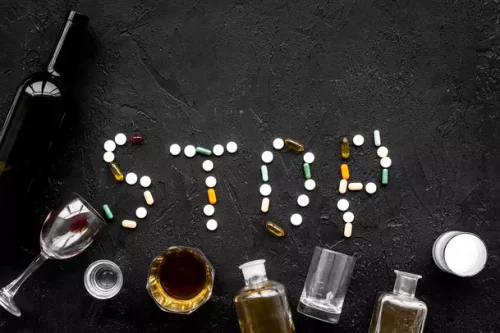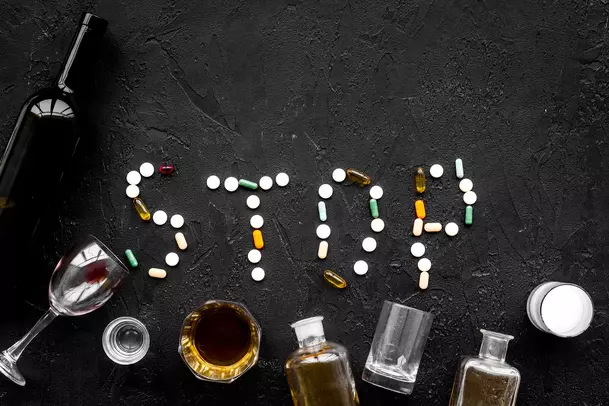
It has been defined as using a psychoactive agent, which results in high levels of stress and functional disabilities 2. This disorder has been reported as a primary factor for disability globally. It is also a contributor to a wide range of psychological and physical disorders, most commonly severe depression 3. It has been estimated that up to 40% of patients with depression have a history of SUD or alcohol dependence during their lifetime 4.
Should You Quit Drinking If You Have an Anxiety Disorder?
Among those with AUD, about 15-30% overall have co-occurring post-traumatic stress disorder, with increased rates of 50-60% among military personnel and veterans.28 The two conditions may worsen each other. Thus, here, too, it’s important to be cognizant of the signs of PTSD in patients with AUD, and vice versa. Anxiety disorders are the most prevalent psychiatric disorders in the United States. The prevalence of AUD among persons treated for anxiety disorders is in the range of 20% to 40%,2,15 so it is important to be alert to signs of anxiety disorders (see below) in patients with AUD and vice versa. Experiencing both depression and does alcohol make depression worse AUD can be a difficult road, but recovery is possible. Many people have been where you are and have successfully treated their depression and alcohol use disorder.

Therapy
However, both alcohol dependence and alcohol misuse fall under the AUD umbrella. Nearly one-third of people with major depression (or major depressive disorder) also have alcohol use disorder. Research shows that depressed children are more likely to have problems with alcohol a few years down the road.

Treatment for Co-Occurring Depression and Alcohol Use Disorder
- We invite healthcare professionals to complete a post-test to earn FREE continuing education credit (CME/CE or ABIM MOC).
- What’s more, most of these medications are covered by health insurance plans; generic options are also available.
It’s also common for someone struggling with an alcohol use disorder (AUD) to develop substance-induced depression. Of those who drink alcohol excessively, about 50 percent suffer from depression. While sadness is a normal part of life, clinical, major depression is most definitely not. It causes distress, dysfunction, and, in the most severe cases, a potential for death.
Treating Depression and Alcohol Addiction: A Psychiatrist’s Perspective (Part 2 of

The two conditions often co-occur with anywhere between 33% and 63.8% of people with AUD also having depression. People who have both tend to have more severe symptoms than those who have only one disorder. Regular drinking can lead to depression, and depressed people are also more likely to drink too much. Depression is a common and serious mood disorder, which can impact your thoughts, feelings, and behaviors. In the United States alone, an estimated 17.3 million adults have had at least one major depressive episode.
Struggling With Alcohol? Medication May be Able to Help
As part of the nutrition team, she edits and assigns nutrition-related content and provides nutrition reviews for articles. Maria Laura’s education, experience and clinical hours from Mexico are equivalent to that of a U.S. credentialed registered dietitian. She is an almond butter lover, food enthusiast and has over seven years of experience in nutrition counseling. Most outpatient and inpatient treatments will Twelve-step program have psychiatrists in-house who can prescribe medication to manage anxiety. Depending on the level of alcohol misuse, a person may need to seek more serious treatment.

The relationship between alcohol and depression is bidirectional, with each condition exacerbating the other. Alcohol can significantly impact brain chemistry and mood, leading to or worsening depressive symptoms. Alcohol is a central nervous system depressant that alters the balance of neurotransmitters in the brain, particularly affecting serotonin and dopamine levels.

They may be able to help determine one’s medical needs and perhaps refer them to a suitable rehab center. Additionally, one may consider visiting the SAMHSA treatment locator to search for programs by zip code. People with AUD have a heightened risk for depressive disorders, which are the most common co-occurring psychiatric disorders for this population. AUD and depressive disorders appear to share some behavioral, genetic, and environmental risk factors, yet these shared risks remain poorly understood. However, alleviating depression does not resolve the alcohol use disorder.
- It’s no surprise that people with both depression and alcohol problems experience a greater severity of each illness—and an overall worse prognosis—than those with one condition or the other.
- However, the results of additive and multiplicative interactions indicated that the synergistic effect of heavy alcohol consumption and depression on all-cause and cause-specific mortality did not reach statistical significance.
- It has influenced favourably both depressive symptoms and alcohol consumption in several studies, in particular when combined with naltrexone.
- The content published in Cureus is the result of clinical experience and/or research by independent individuals or organizations.
- Making positive changes in various areas of your life can reduce the risk of mood disorders, depression, alcohol dependence, and substance use disorder worsening.
Alcohol Use Disorder and Depressive Disorders
Additionally, behavioral therapies can help you recover from AUD.9 Cognitive behavioral therapy can help you recognize and change distorted thought patterns, which can cause suicidal behavior and ultimately lead to an AUD. When you drink excessive amounts of alcohol, your brain adapts by reducing GABA receptors stimulated by the alcohol. Researchers agree that alcohol and depression have a bidirectional relationship, meaning that depression can cause overuse of alcohol, but overuse of alcohol can also cause depression. Unlike bereavement, depression is often accompanied by feelings of worthlessness, self-loathing, or suicidal thoughts. Contributors to this article for the NIAAA Core Resource on Alcohol include the writers for the full article, reviewers, and editorial staff. These contributors included both experts external to NIAAA as well as NIAAA staff.
- Our compassionate staff stands ready 24/7 to help answer your questions about addiction and co-occurring disorders, help you find suitable rehab centers, and verify your insurance coverage.
- Consequently, the percentage of participants with no heavy drinking days is accepted by the FDA as a valid outcome measure in trials of medications for alcohol use disorder4.
- In addition, your doctor may prescribe medicines that are meant to lower alcohol cravings, which can reduce your desire to drink.
- Many hangover symptoms arise due to detoxification, the physical process of ridding the body of toxic chemicals caused by alcohol consumption.
Also called dual diagnoses, co-occurring disorders are classified as any combination of substance use disorders and mental disorders that occur simultaneously. Alcohol use disorders can range from mild to severe, including binge drinking and alcoholism. Second, excessive alcohol use can affect your brain chemistry, making you more likely to feel depressed. You may drink more to manage worsening feelings of depression, entering into a vicious cycle.
